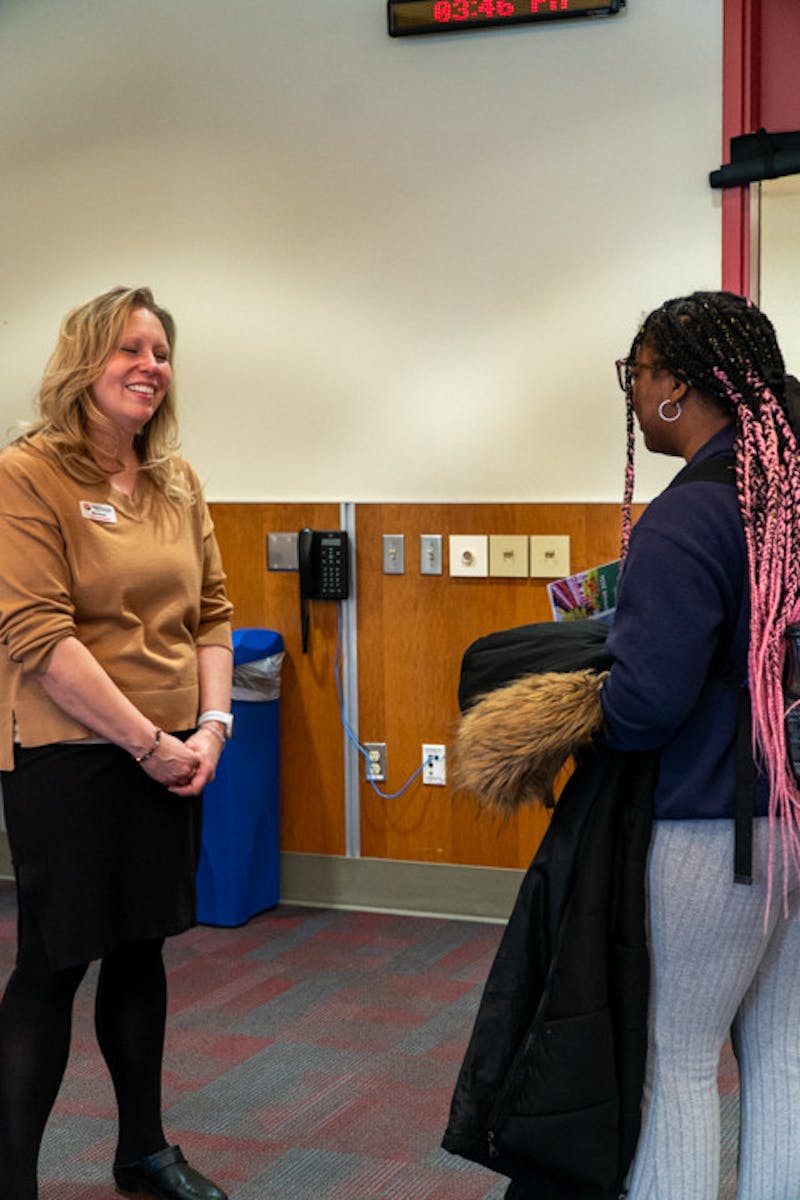Six students hosted a panel for International Education Week to share information on the Study Abroad Program in the Orndorff Theater on Tuesday, Oct. 28.
The panelists described opportunities that their travel abroad experiences gave them, which included building upon languages, teaching in a different country, cultural knowledge and personal growth. The countless doors opened from their explorations were expressed, along with all panelists wishing to go back to the countries they visited again.
Marlon Aristy recently had his first visit back to the Dominican Republic in 13 years. He taught elementary school students during his stay.
Aristy said the chance to give back was an incredibly valuable experience. The interaction with the children was an eye-opening experience for him, and he saw the differences in the Dominican Republic and the U.S. education systems.
Being immersed in a language makes improvement quicker. Aristy told this to a friend visiting the U.S. on her own study abroad trip, and this advice gave her more confidence in speaking English.
“It’s scary but once you get to do it and you find those people that give you grace it’s fun,” Aristy said.
Henry Tushek studied in Taipei, Taiwan. He went to National Taiwan University and lived with a host family there. He encouraged others to have a host family if possible, as it is a wonderful option. He would spend weekends with his host brother, host sister and host mom, who worked helping blind people go on hikes in the area.
Meeting people during these trips is a critical part of the journey aside from practicing the language and going to school. Both Liam Brenize and Cejay Cocco visited multiple countries, including Italy, Spain, Ireland and Iceland.
Brenize said it was a personal journey. The people he met were willing to help him and make him feel more comfortable. They were friendly, and it was nice to see the abundance of positivity they brought him.
Gabbie Bower said that after studying French for so long, it was fulfilling to be able to use the skills she learned to see how far she had come with the language.
Tushek mentioned how a hurdle on study abroad trips is understanding the language more than speaking it. Having a good foundation by studying for at least six months to a year is beneficial. It helps students connect better with the people they meet and understand the culture.
“The professors here at Shippensburg create a wonderful environment to begin the language learning process,” said Tushek.
Studying abroad lets students explore new cities and areas of the world. Classes can be taught while walking through plazas and museums, or by viewing a city’s layout from the rooftops.
Selena Morrow said she would travel back to France or Belgium in a heartbeat to do independent research on the European Union in France and its effects on identity and culture.
The students mentioned how there is time for students during their study abroad trips to be able to explore and broaden their knowledge of the world. Studying abroad offers the chance to get out of their bubble, embracing more of what the world at large has to offer.
The students encouraged those who are interested in studying abroad to speak with Director of Global Engagement Mary Burnett, who could give students crucial information and support to start the process of studying abroad.



The Slate welcomes thoughtful discussion on all of our stories, but please keep comments civil and on-topic. Read our full guidelines here.